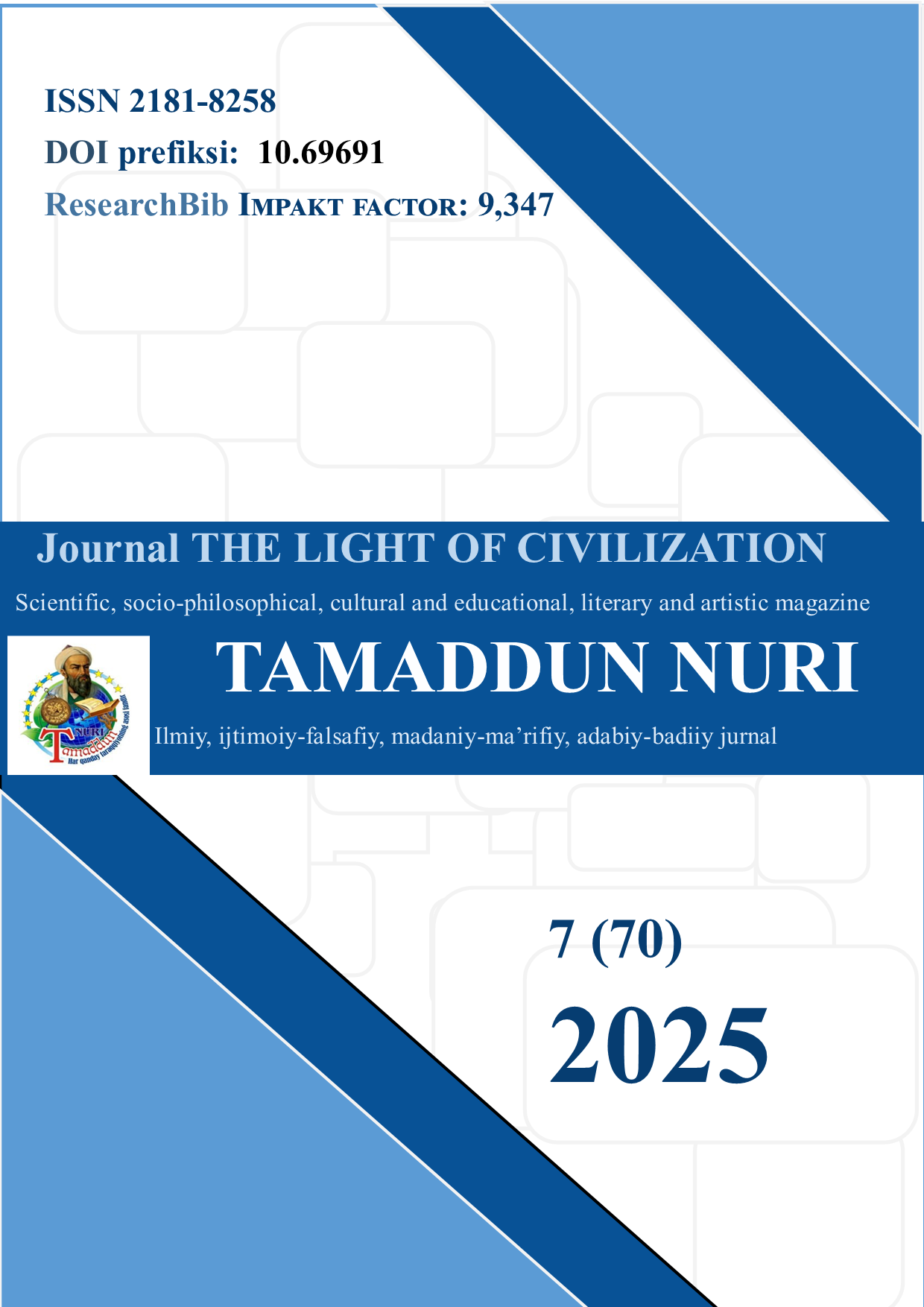DERADICALIZATION: AS A SOCIO-PHILOSOPHICAL ISSUE
DOI:
https://doi.org/10.69691/hxhz6y49Keywords:
soft power, radicalism, socio-philosophical analysis, ideology, religious extremism, information space, social media, conscious choice.Abstract
This article examines the role and significance of the "soft power" principle in combating the spread of radical ideologies from a socio-philosophical perspective. It emphasizes the importance of building social immunity, encouraging conscious decision-making among citizens, and countering the roots of radicalism through ideological and spiritual means. The study highlights the role of education, culture, religious enlightenment, media, and social networks as key tools of soft power.
References
O‘zbekiston Respublikasi Konstitutsiyasi // https://lex.uz/uz/docs/-6445145
Mirziyoyev Sh.M. Yangi Oʻzbekiston strategiyasi. – Toshkent: Oʻzbekiston nashriyoti, 2021. – 464 b.
Alonso Rogelio. Why Do Terrorists Stop? Analyzing Why ETA Members Abandon or Continue with Terrorism. Studies in Conflict & Terrorism 34(9). 2011. – P.696- 716.
Ashour Omar. The De-Radicalization of Jihadists: Transforming Armed Islamsit Movements. New York: Routledge. 2009.
Bötticher Astrid. Toward Academic Consensus Definitions of Radicalism and Extremism. Perspectives on Terrorism 11(4). 2017. – P. 73-77.
Boucek Christopher. Saudi Arabia’s “Soft” Counterterrorism Strategy: Prevention, Rehabilitation, and Aftercare. Washington D.C.: Carnegie Endowment for International Peace. 2009.
Donatella Della Porta. Clandestine Political Violence. Cambridge University Press, 2013. – 338 p.
Downloads
Published
Issue
Section
License
Copyright (c) 2025 Journal of Tamaddun Nuri

This work is licensed under a Creative Commons Attribution-NoDerivatives 4.0 International License.



